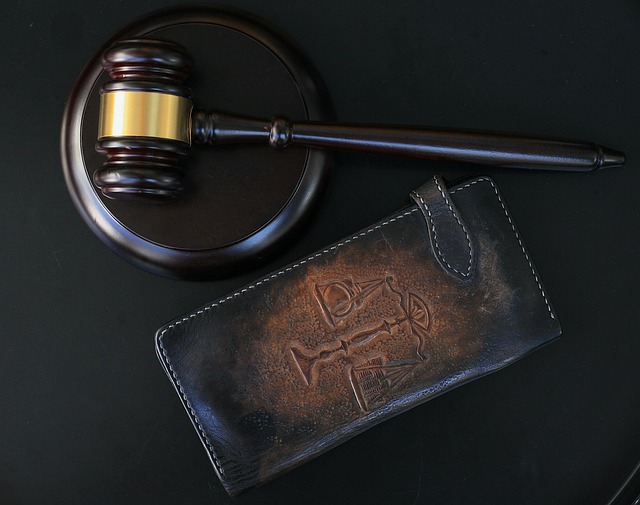Mail wire fraud, a deceptive crime involving impersonation and phishing, causes significant financial and emotional harm. Understanding this fraud and your rights during post-conviction proceedings is crucial for justice and recovery. Skilled legal defense, including meticulous evidence review and challenging evidence admissibility, is vital. Implementing strong security measures, actively reviewing mail, and understanding rights in criminal defense and business operations can prevent falling victim to these scams.
Mail wire fraud, a sophisticated form of cybercrime, involves deceptive practices through electronic communication. This article delves into the intricate world of mail wire fraud, exploring its various schemes and impacts on victims. We dissect legal processes, from investigation to proof, and analyze the rights of accused individuals during post-conviction proceedings. Additionally, we highlight preventive measures and security enhancements within the mail system to mitigate this growing threat, ensuring a comprehensive understanding of this modern-day enigma.
- Understanding Mail Wire Fraud: Definition and Common Schemes
- The Impact on Victims: Financial and Emotional Consequences
- Legal Processes: Investigating and Proving Mail Wire Fraud
- Rights of Accused Individuals During Post-Conviction Proceedings
- Preventive Measures and Security in the Mail System
Understanding Mail Wire Fraud: Definition and Common Schemes

Mail Wire Fraud is a type of criminal activity that involves the use of deceptive tactics to manipulate individuals into transferring money or sensitive information via mail or electronic wire services. This form of fraud has become increasingly common, taking various shapes and forms across the country. From phishing scams to impersonation schemes, these fraudulent practices can have devastating financial and emotional consequences for victims. Understanding how these schemes operate is crucial during post-conviction proceedings, as it helps in achieving extraordinary results for his clients.
Common Mail Wire Fraud schemes often begin with a sophisticated con artist posing as a trusted entity, such as a bank or government agency. They may use impersonation tactics to trick individuals into disclosing personal and financial information or sending money under the guise of a legitimate request. For example, a scammer might send emails or letters claiming that the victim has won a prize but must pay certain fees to receive it, leading to significant financial losses if the victim falls for the deception. By staying vigilant and educating oneself about these schemes, individuals can protect their rights during post-conviction proceedings and prevent becoming another statistic in this growing fraud landscape.
The Impact on Victims: Financial and Emotional Consequences

Mail wire fraud can have devastating effects on its victims, both financially and emotionally. When individuals fall prey to these schemes, they often face significant financial losses—from bank account depletion to identity theft and subsequent credit issues. The emotional toll is equally profound, as victims may experience feelings of vulnerability, fear, and anxiety, especially when dealing with high-stakes cases that span across the country.
The consequences extend beyond immediate monetary damages. Victims may struggle with the psychological impact for years, particularly in cases where they have been targeted repeatedly or lost substantial assets. Understanding one’s rights during post-conviction proceedings is crucial in such scenarios, as it can help achieve extraordinary results and provide some measure of justice and recovery.
Legal Processes: Investigating and Proving Mail Wire Fraud

Mail Wire Fraud, a sophisticated crime often involving complex financial schemes, necessitates meticulous legal processes for investigation and proof. The journey to justice begins with a thorough examination of financial records, digital trails, and witness testimonies, all while navigating the intricate web of communication that characterizes these frauds. Law enforcement agencies collaborate with prosecutors to build a compelling case, ensuring every step aligns with legal protocols.
Post-conviction proceedings offer opportunities for appeals and new evidence, where individuals accused of mail wire fraud can assert their rights. This includes challenging the admissibility of evidence, questioning procedural fairness, and presenting mitigating factors. Skilled white collar defense attorneys play a pivotal role in these processes, defending clients within the ethical framework while protecting their rights throughout all stages of the investigative and enforcement process. The philanthropic and political communities, often vulnerable to such schemes, can find solace in robust legal defenses that uphold justice and deter future crimes.
Rights of Accused Individuals During Post-Conviction Proceedings

During post-conviction proceedings, accused individuals enjoy certain rights that are crucial to ensuring fairness in the legal process. This period allows for a thorough examination of the case, with the defendant having the opportunity to present new evidence and arguments that may challenge their original conviction. One significant right is the ability to appeal the verdict, seeking a complete dismissal of all charges if found meritorious. This stage also provides an avenue for individuals convicted of white-collar and economic crimes to clear their names and rectify potential legal errors.
The process offers an unprecedented track record of ensuring justice by allowing for a nuanced review of facts not previously considered or properly evaluated during the initial trial. It empowers defendants to access legal resources, challenge evidence, and present witnesses, thereby upholding the integrity of the criminal justice system.
Preventive Measures and Security in the Mail System

To prevent mail wire fraud, it’s essential to implement robust security measures within the mail system. This includes encrypting sensitive data and using secure communication channels for financial transactions. Individuals should also be vigilant in reviewing their mail and immediately report any suspicious activity or unusual communications to the authorities.
During post-conviction proceedings, understanding one’s rights is crucial. In cases involving general criminal defense, jury trials, and respective business operations, individuals must be aware of potential scams and fraudulent practices. By staying informed and adopting preventive measures, one can significantly reduce the risk of falling victim to mail wire fraud, ensuring a safer and more secure exchange of information and funds.
Mail wire fraud, a sophisticated crime that exploits our reliance on digital communication, demands a multi-faceted approach. By understanding common schemes and strengthening legal processes, we can better protect individuals from financial loss and emotional distress. It’s crucial to recognize the rights of accused persons during post-conviction proceedings while also implementing robust preventive measures within our mail systems. Together, these efforts will contribute to a safer digital landscape for all.






